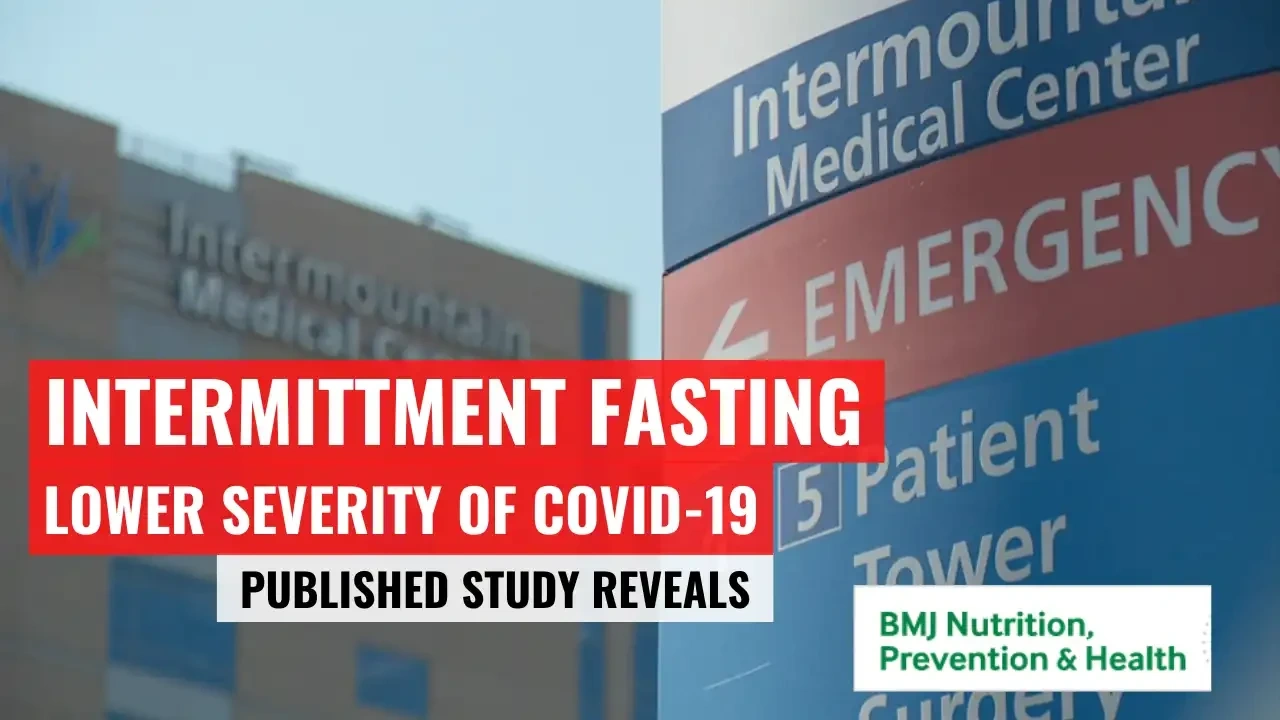Intermittent Fasting Study: Less Severe Complications from COVID-19
Aug 25, 2022
A recent peer-reviewed study published in the BMJ Nutrition, Prevention and Health showed that regular intermittent fasting had a lower chance of being hospitalized or dying from COVID-19, compared to people who did not practice the eating plan.
The American study, based at Intermountain Healthcare, a not-for-profit network of 33 hospitals based in Utah, looked at 205 patients who had tested positive for SARS-CoV-2, the virus that causes COVID-19, between March 2020 and February 2021 before vaccines were widely available.
This supports the research that suggests fasting not only helps burn fat but offers many other health benefits as well. Studies have shown fasting can help control inflammation by reducing the amount of pro-inflammatory cells released into the blood. Fasting also triggers autophagy – a process by which the body breaks down and destroys old and damaged cells.
Intermittent fasting also switches the bodies source of energy from glucose to fats and increases the amount of free fatty acids circulating in the body. This is called metabolic flexibility, as explained in the video below.
While researchers concluded that more work is needed to better understand why intermittent fasting is linked to better outcomes for COVID-19 patients, other studies have shown severe cases of COVID-19 infection are typically associated with cardiometabolic health issues, which includes several risk factors including type 2 diabetes and insulin resistance, cardiovascular disease, cholesterol levels, high blood pressure, and overweight and obesity.
"Patients in the study have been practicing intermittent fasting for decades, not just a few weeks. Periodic fasting did not, however, predict whether or not a subject would be infected by SARS-CoV-2", according to Dr. Benjamin Horne, the director of cardiovascular and genetic epidemiology at Intermountain Healthcare and lead co-author of the paper.
The study said periodic fasting remained an independent predictor of a lower risk of hospitalization and mortality even after its analyses were adjusted for such factors including age, smoking, alcohol and ethnicity. The authors suggest the relatively higher rate of periodic fasting in Utah compared to other states may have contributed to the lower-case fatality rates in the state.
“While fasting is not a panacea or a quick fix for health problems, low-frequency fasting improves cardiometabolic health even without significant weight loss, and multiple biological mechanisms and epidemiological results support the idea that consistent fasting may limit COVID-19 severity,” the study’s authors wrote.
Source: BMJ Nutrition, Prevention and Health article titled: Association of periodic fasting with lower severity of COVID-19 outcomes in the SARS-CoV-2 prevaccine era: an observational cohort from the INSPIRE registry
Related articles:
Feel Better Than You Have In Years!



